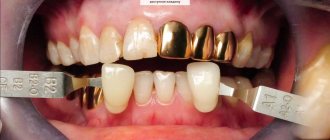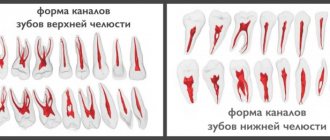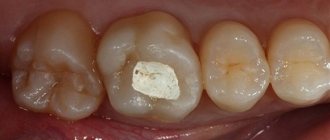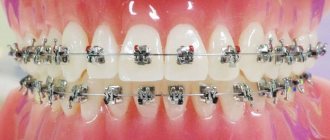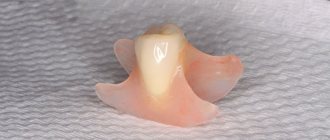In contrast to higher non-medical education in Russia, which consists of 4 years of bachelor’s and 2 years of master’s, future doctors will undergo a much longer, multi-stage training. A full-time student must study a specialty at his university, and then complete residency or graduate school. On average, it takes 9 years to become a doctor after 11th grade.
In our country, a medical student after 6 years of study at a medical university is not yet a doctor; in order to become a practitioner, he needs a specialist certificate. You can receive such a certificate only after residency training, as part of your postgraduate education. At a medical university, a student receives knowledge in “medicine” or “pediatrics,” but only after specializing in residency can he become a doctor of his chosen profile - a neurologist, gynecologist, dermatologist, etc.
There is another medical specialty, which, unlike others, can be obtained by correspondence and in less time. This is a pharmacist, and the training consists of a specialty and a master's degree, that is, after 6 years you can become a pharmacist, but not a doctor.
Until 2016, in Russia, residency had an alternative - internship, which consisted of a year-long practice in a hospital under the guidance of an experienced doctor, and one could try oneself in different specialties. However, this opportunity to choose, like the internship itself, has been canceled since 2016.
Duration of study: from admission to graduation
Doctors are trained only face-to-face.
Medical universities take a long time to study, from 5.5-6 years. Becoming a doctor requires a lot of patience and effort. The training program must be chosen according to preference. Studying will not bring benefit and pleasure to students if there is no interest in the specialty. Choosing the difficult path of a physician means analyzing the following risks before admission and accepting them:
- big competition;
- Difficulties in admission and high requirements, in-depth knowledge of chemistry, biology;
- The specifics of the specialty can be psychologically difficult—you have to deal with open wounds and injuries. - paraphrase
There is no need to idealize the chosen program - it has pros and cons. The duration of training for specialists is from 5.5 to 6 years on a full-time basis, depending on whether the applicant enters after school or after college.
Doctors are needed always and everywhere - this advantage of the specialty is undeniable. With such an education you can always find a job. It is important to know the advantages and disadvantages of the chosen program.
Colleges provide secondary vocational education. The duration of study is shorter and the cost is lower. They enter the university to study a specialty. They study longer and pay more money for education.
Residency is necessary for doctors to obtain a more narrow focus (urologist, gynecologist, cardiologist, surgeon, neurologist). Depending on the direction, residency lasts from 2 to 4 years. People go there after a specialty degree.
How many years does it take to study to become a doctor?
Studying to become a doctor is a long and responsible process that not all students are ready to go through. In the first year, up to 30% of students drop out of their studies and up to 20% interrupt it in subsequent courses. Applicants who decide to enroll in medical school do not always realize what path lies ahead of them. Sometimes reality gets lost behind a dream, so you need to be aware of how much effort you will have to put in to achieve your goal.
You can study to become a doctor all your life, because after university you will need to continue to gain experience, take part in conferences and improve your knowledge. Medicine is constantly evolving, and to be a sought-after specialist, you need to keep up with the times.
But education begins from the base: with admission to an educational institution. Becoming a medical student is not that easy: college requires a high GPA and good performance on entrance exams. When entering a university, the Unified State Exam plays the main role, but school grades also matter. You can get an advantage among other applicants with the help of additional points for participating in republican Olympiads and scientific competitions.
Duration of college
Professions taught in college:
- pharmacist;
- nurse/brother;
- paramedic
After 9th grade, they study for 3 years and 10 months. After 11th grade - 2 years and 10 months.
To enter college you don’t need to take the Unified State Exam; it’s cheaper to study there. In just a few years you can go back to work. But with such qualifications it is difficult to move up the career ladder and earn a lot, so many graduates enter universities.
After the 9th grade, both general education and highly specialized subjects are studied in the first year of school. They study medications, their properties, how and when they are prescribed. the structure of the human body and how its organs work. Covers the basics of the specialty and how to provide medical services.
Story
The history of ridding people of diseases goes back to ancient times. Even before the invention of drugs, there were healers and healers who successfully used herbs and other natural ingredients for treatment. But it was the scientific approach to treatment that originated during the life and work of Hippocrates, to which all physicians take an oath after completing their training. It includes the basic principle of the doctor - “do no harm.” During the time of this great scientist, the unity of man and the environment, as well as the need for bed rest to speed up the healing process, had already been proven.
During the same period, the great Avicenna practiced and studied the science of treating patients. In his works, he wrote about how strongly the patient’s desire to get well influences the likelihood of his recovery, as well as the connection between the disease and psycho-emotional characteristics. In the 18th century, Anton de Gaen proposed a method for changing body temperature, and Leopold Auenbrugger introduced percussion into examination with a detailed description of the rationale for its necessity.
Medical science in the 19th century was enriched with new discoveries. Rene Laennec invented a stethoscope for listening to the heart and other organs, the first instrumental diagnostic methods appeared, and in the 90s of this century X-rays were discovered. Doctors of many specialties still use this unique discovery to identify pulmonary, articular and other pathologies.
In Russia, therapy was based on the discoveries of great physiologists (Sechenov, Pavlov, Botkin). Ostroumov created a palpation technique for examination. Therapists began to be taught according to Mudrov’s postulate, which called for “treating not the disease, but the patient,” thereby paying attention to the individual characteristics of the body and its ability to recover.
Terms of study at the university
It takes 5.5 - 6 years to become a general practitioner. For a dentist - 5 years.
People always wear a cap and a white coat to classes, even to classes in philosophy and a foreign language. There should be several sets of uniforms. They need to be washed regularly and always taken with you.
The first course is the most difficult. Its end is the time when every fifth student wants to drop out. First-year students are put off by the complexity of the subjects, the strictness of the teachers, and the heavy workload. Many cannot stand the sight of wounds, blood, corpses.
After 11th grade they study for 6 years, after college - 5.5 years. Graduates undergo initial accreditation. Their theoretical knowledge and practical skills are tested.
After successful completion, you can work as a therapist. To become a surgeon, cardiologist, or doctor of another narrow specialty, you need to study in residency.
Responsibilities
Therapeutic doctors are required to perform the following actions during a patient’s appointment:
- initial examination, survey, study of anamnesis and complaints;
- consultation of the condition before surgery;
- control of the treatment provided at the re-appointment;
- referral for tests and interpretation of their results;
- making a preliminary diagnosis and a final one according to your profile;
- identification of dangerous infections, hospitalization of the patient and report to the SES;
- medical and social assistance;
- visiting patients at home;
- maintaining documentation (recording examination results, issuing sick leave certificates and certificates at the place of request, registering for medical examination, filling out a sanatorium-resort card, sending to a hospital, writing prescriptions);
- medical examination, medical examinations, participation in the work of the draft commission;
- disease prevention;
- patient management after discharge from hospital;
- immunization and control of timely vaccinations;
- referral to specialists (if necessary);
- supervision of pregnant women.
The specialist also checks the dynamics of a person’s condition during treatment, prescribes or cancels medications used, recommends diets, and provides emergency assistance in an acute situation.
Admission conditions
Those with secondary medical education pass entrance tests in the Russian language, biology, and chemistry. To enroll after school, you need to pass the Unified State Exam.
Applicants with Russian citizenship provide a package of documents consisting of: an application, personal data form, certificate, passport, photographs, health certificate.
Medicine is for those who know natural sciences. If you lack basic knowledge, it is better to choose a college or another direction.
When choosing a private educational institution, you should make sure that it is accredited. You need to be sure that this will not cause obstacles to obtaining a diploma and starting a career.
A person with a medical education is not yet a doctor
The structure of medical education is fundamentally different from the usual
If a lawyer or a teacher, for example, only needs to complete a bachelor’s degree to go to work in his specialty, then a medical student who has completed 6 years of study is not yet a doctor. When is the doctor?
A specialist certificate allows you to practice. After 6 years of gaining knowledge in the field of general medicine or pediatrics, the graduate will gain experience as part of postgraduate education.
You need to undergo specialization in residency. A person graduates from residency as a “specific”, that is, specialized doctor (neurologist, ophthalmologist, dermatologist, etc.).
What is an internship
An internship, to put it simply, is a one-year (on average) practice after receiving a diploma of completion of a medical education program - that you have completed your studies and mastered the theory. In fact, the person is already working as a doctor “under the supervision” of an experienced doctor, but is not yet one and does not have the appropriate certificate. At the same time, he tries himself in different specialties (unlike residency).
The problem is that since 2016, internships have been abolished in the Russian medical education system.
Once again: there are no more internships. RIP. Instead, you need to go to residency or graduate school.
What is residency
In fact, this is already work as a doctor, the first practice, but educational, also still under the supervision of experienced doctors. There are also theoretical classes. But for those who like research, graduate school is more suitable. A resident doctor is also not quite a doctor yet - if he does not complete his residency, he will not be able to practice.
Short description
Pediatrics is a separate field of medicine, which includes the study of different areas:
- social. The area addresses issues of proper child care, diet, the benefits of vaccination and the harm of self-medication;
- neonatology. The section studies diseases, developmental stages and pathologies characteristic of newborns;
- clinical. Includes a comprehensive examination, prevention, drug treatment, rehabilitation;
- preventive. It involves the use of different types of research, screenings and analyzes necessary to search for developmental pathologies, hereditary diseases and emergency conditions in newborns, primary schoolchildren, and adolescents.
The responsibilities of a pediatrician include working with children and consulting activities aimed at educating parents. He monitors and treats patients suffering from diabetes, intestinal and infectious diseases, ARVI, sore throat and flu, allergic reactions, rickets and others.
Important personal qualities
The therapist must be a very sociable, patient and attentive person. It is important to have the following character traits:
- confidence,
- altruism,
- empathy,
- politeness,
- subsequence,
- composure.
The therapist conducts the conversation correctly, knows how to win you over, and has basic knowledge of psychology. He must feel the patient’s mood, but at the same time maintain a certain distance, continuing to remain a certified specialist, and not a friend-interlocutor.
Who is the profession suitable for?
Everyone can work, regardless of gender. To do this you must have certain qualities:
- stress resistance and patience;
- high analytical skills;
- good memory;
- attentiveness and observation;
- knowledge of human psychology;
- responsibility.
Since the specialist’s duties include visiting his patients at home, he also requires physical endurance. Doctors of this profile study all their lives, because the science of helping sick people is improving and requires a qualified approach. Therefore, the desire to learn new things is an integral part of the work of any physician. It is also very important to simply love your profession, because in our country it rarely brings tangible cash dividends.
Wage
A therapist’s income depends on his qualifications, region and profile of the medical institution. The lowest salaries are in public clinics, while the highest rates are paid to doctors in large private clinics.
If you believe official sources, the average salary of a therapist in Russia is 38 thousand, in Moscow – 45 thousand, in St. Petersburg – 30 thousand rubles. Additional bonuses are given for the category of harmfulness (work in psychiatric institutions or infectious diseases departments). However, here I immediately remember an old joke: Ivan Ivanovich eats pork, and Pyotr Petrovich eats cabbage, but on average they eat cabbage rolls. It's the same with wages. If for Moscow 45,000 rubles is the norm, then in small cities an ordinary local therapist is often content with the amount of 12-14 thousand (sometimes even less).
